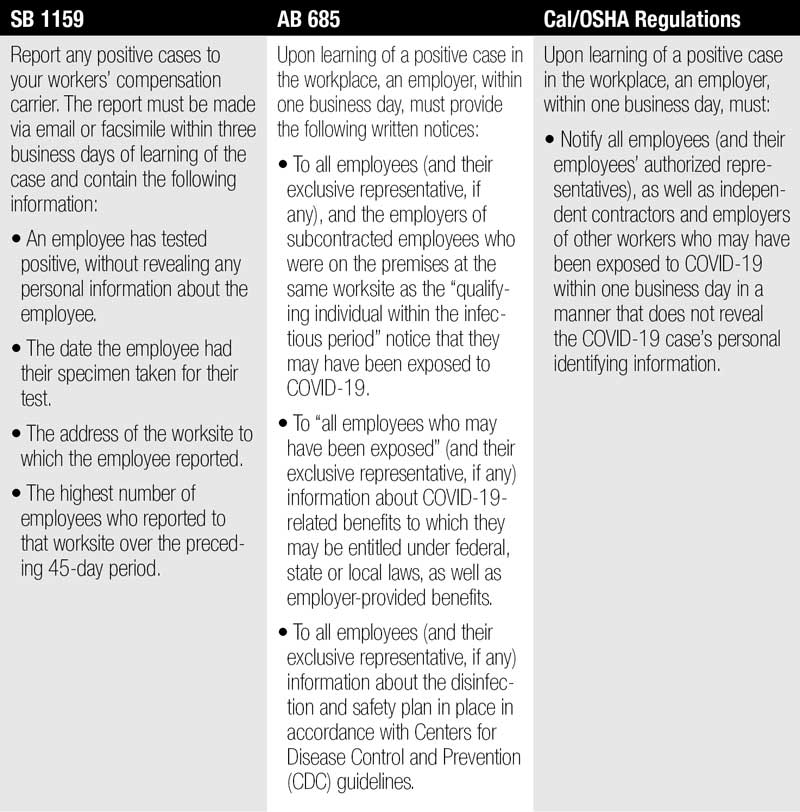[Source: CalChamber] During the 2020 California legislative session, COVID-19 forced lawmakers to pivot from their routine business to addressing the growing pandemic.
In response, the Legislature enacted SB 1159 and AB 685 that created certain reporting requirements for employers when learning of a positive case.
Following up, Cal/OSHA recently approved and implemented COVID-19 emergency regulations that also create a set of reporting requirements.
Outline of Requirements
To help readers sort out these varied requirements, we have created the table below outlining the reporting requirements when an employer learns of an employee contracting COVID-19. These requirements are currently in effect and apply only when the employee contracting COVID-19 is reporting to a worksite outside the home.

COVID-19 Outbreaks
In addition to these reporting protocols, there are special rules under AB 685 and the Cal/OSHA emergency regulations when an employer experiences an outbreak at the worksite.
AB 685 defines outbreak in accordance with the California Department of Public Health (CDPH) definition. Currently, the CDPH defines an outbreak as three positive cases in a 14-day period.
Cal/OSHA also uses this definition for outbreak; however, the emergency regulations also allow local public health departments to define outbreaks differently.
Upon learning of an outbreak as defined by AB 685 or Cal/OSHA, an employer, within 48 hours, must report the outbreak to the local health department.
The employer must provide the names of the employees who have tested positive, their contact information, occupation, workplace location, business address, hospitalization and/or fatality status, and the North American Industry Classification System (NAICS) code for the workplace. Employers also are required to provide any other information requested by the local health department.
These reporting requirements are time-sensitive, so employers should plan and prepare for how they will meet these obligations even before experiencing a COVID-19 case in the workplace.
Source: CalChamber
December 18, 2020


